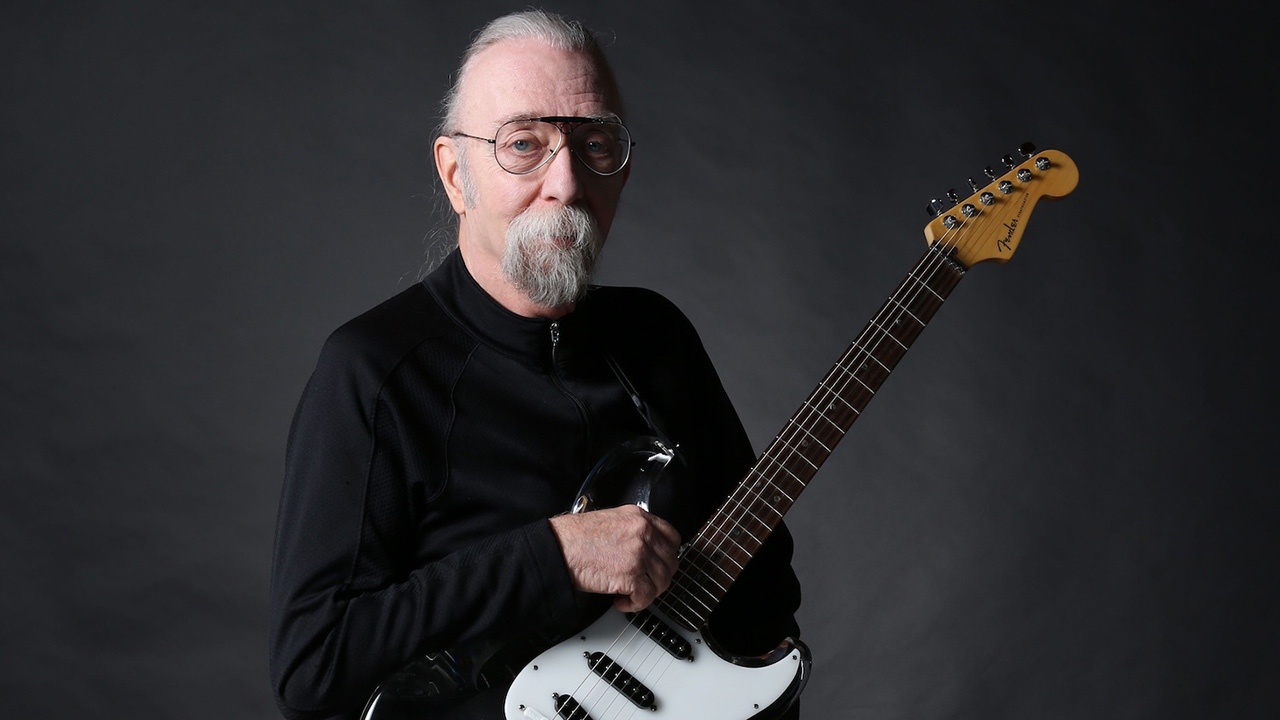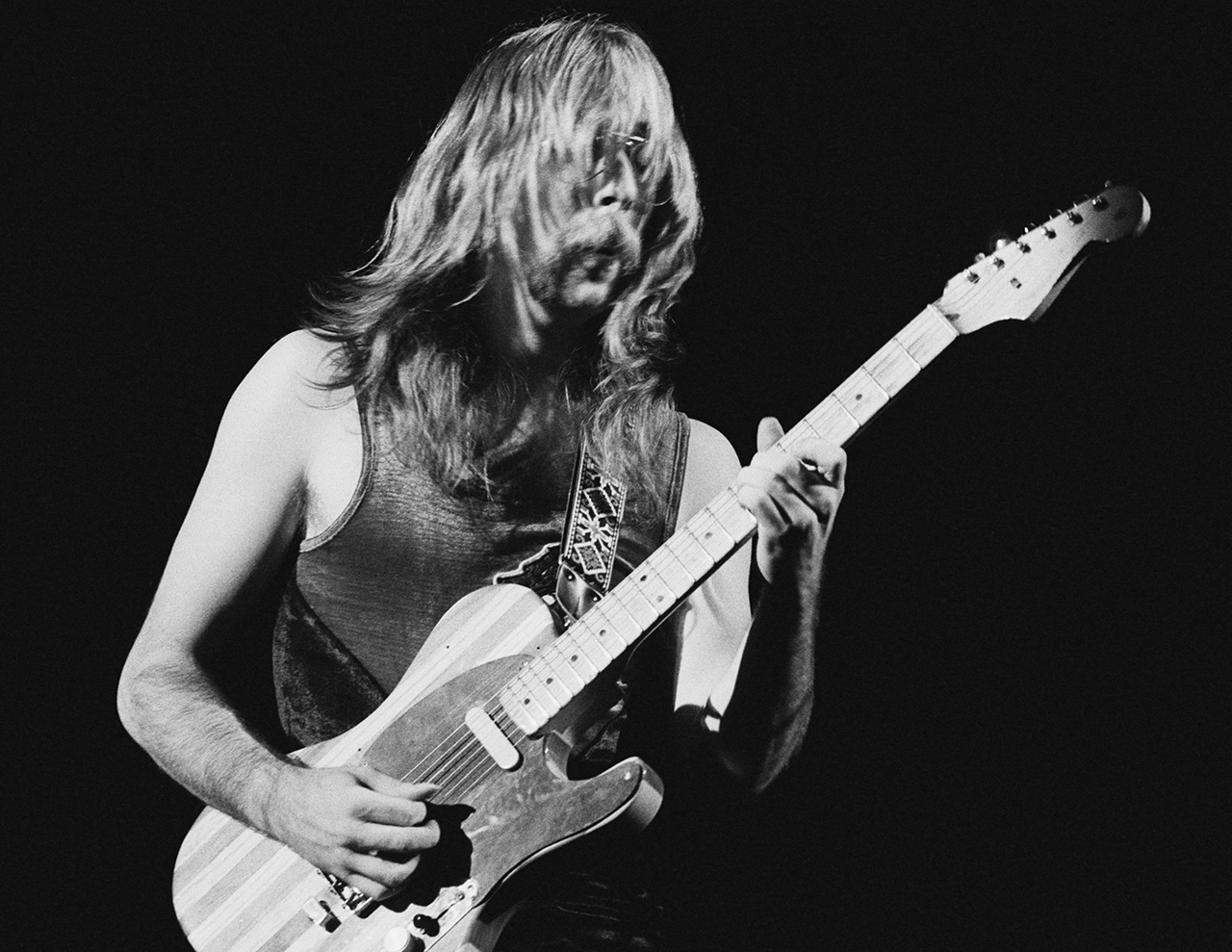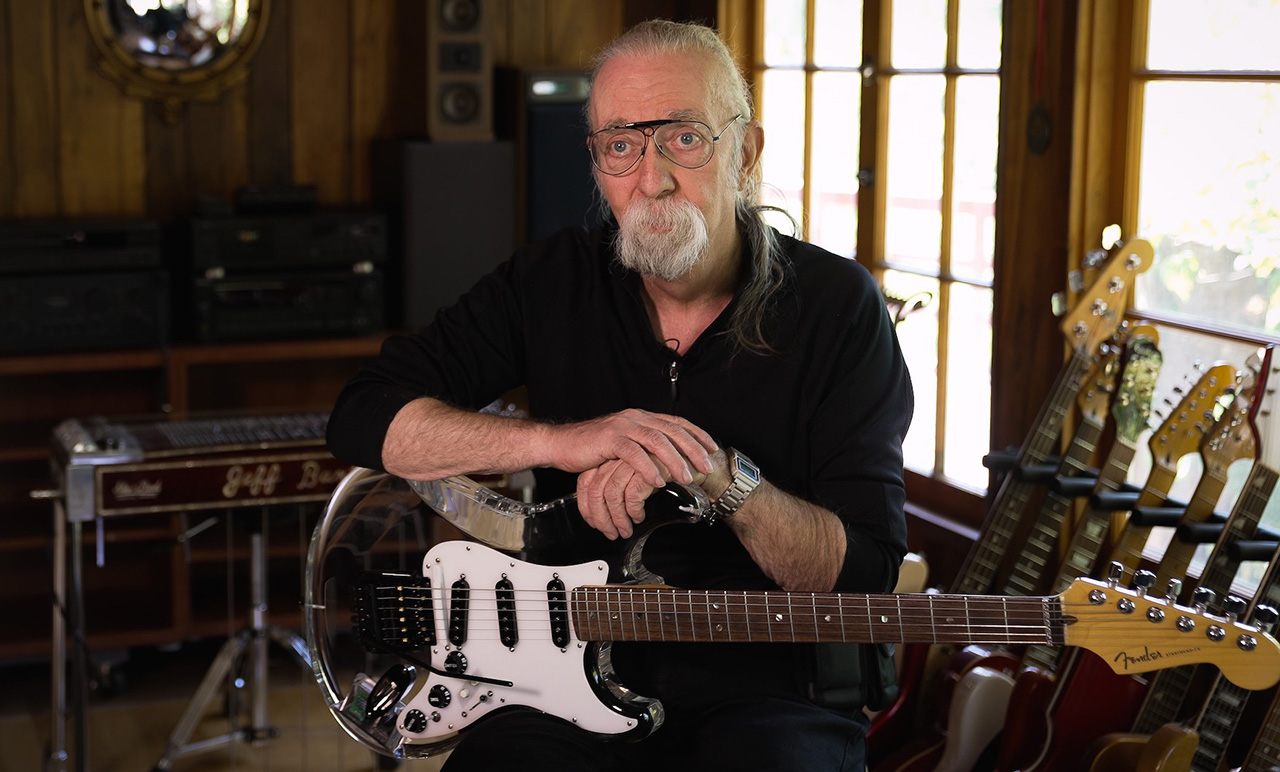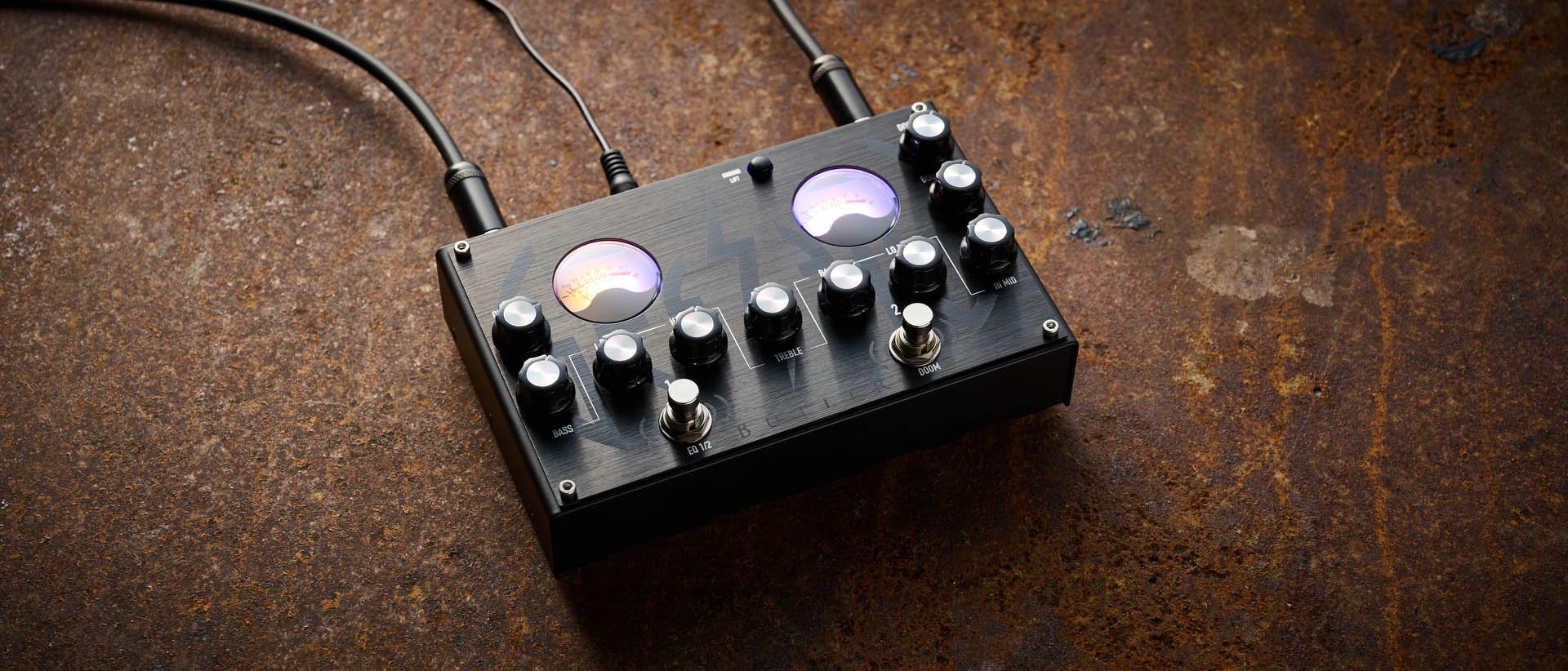“The good news is it was recorded – you can go online and see it. The bad news is that’s because someone stole all the master tapes”: Jeff ‘Skunk’ Baxter on his supergroup with Joe Walsh, sessions with Joni Mitchell and the voices of Albert King
The session great discusses being hand-picked by Gene Simmons, fitting in with James Brown, creating classic solos for Steely Dan and the Doobie Brothers, and Frankenstein acts on most of his guitars

Jeff “Skunk” Baxter has played with everyone from Steely Dan, the Doobie Brothers and Joni Mitchell to Gene Simmons and James Brown. It’s not surprising that his advice errs to eclecticism. “The more you have to call from your encyclopaedia of music, the better it gets,” he says.
With his wide range of credits and a mad-scientist inclination to Frankenstein every guitar he touches, one might think Baxter has a scattered approach. But he reflects: “I’m a fairly well-rounded player. I’ve been in a studio position for 60 years. I know a little bit about playing the guitar, I guess.”
When he’s not rewinding pickups or working with Roland on his beloved Blues Cube, he’ll be found touring or recording. “I still love it; I’ve enjoyed all the session work,” he says. “It’s the challenge to play something that’s creative and also contributes to the song.”
What was the key to your tone with Steely Dan on Rikki Don’t Lose That Number?
“I don’t know! I built all my own guitars, so I guess it had somewhat of a unique sound to it. I was building guitars as a kid. I worked at Dan Armstrong’s shop for a long time. I learned a lot from Dan, Bill Lawrence and folks like that. I strove for the ability to build a pickup and electronics that would allow me to be really dynamic.
“I think the more dynamic you can be, the more expressive you can be. I just love the clarity of brand new steel strings on an electric guitar. My goal was to translate that sound as best as possible. The guitars I worked on had different kinds of decks and fretboards. I’d fret them with different kinds of frets.
“I was always a big fan of Gibson bass frets that were big and chunky. When you dressed and crowned them they were solid, and you could feel that. That was what I was looking for.”
All the latest guitar news, interviews, lessons, reviews, deals and more, direct to your inbox!
You played a lot of pedal steel early on with the Doobie Brothers. Did you build those too?
“No, I’ve never built a pedal steel. I just got reunited with the folks at Sho-Bud, a steel guitar company founded by Shot Jackson and Buddy Emmons. I think it’s the world’s greatest instrument, frankly. There’s nothing you can’t do on it.

“With pedal steel, you’re there as a guest; it really challenges you. But it’s so beautiful – and it’s not just a country instrument. I think a lot of people tend to put it in that category; but it’s an incredibly eclectic instrument. It’s my favorite at the moment. “
You recorded a memorable solo for the outro of the Doobies’ How Do the Fools Survive? Do you remember doing it?
“I do. I had a couple of Fender Deluxe Reverb amps that were customized and modified by Paul Rivera, who did virtually all the amps the LA studio musicians used. It was kind of the LA sound. The guitar was a Fender Stratocaster I’d built with custom pickups.
“The idea was that it was the last song on the album, and the opportunity just unfolded. The fade was so long that I thought, ‘Wow, maybe this is an opportunity. I’m going to approach this in a slightly different manner – I’m going to stay away from the dominant chords of the song and play around them.’
“I used it as kind of an exercise, and it was a bit of a challenge. I believe that was one take; I just sat down and played it. When I finished, it was kind of like, ‘Oh, wow… what just happened?’”
You played guitar on Joni Mitchell’s In France They Kiss on Main Street. How did you approach that?
“Basically, as a professional studio musician; I thought, ‘What does it need? What can I do that would add to the overall presentation and feel of the song?’ It wasn’t really about me. It was more about wanting to make her happy and wanting to do the best I could for her song. Not that I didn’t put a lot of emotional effort into it.”
You played on four songs from Gene Simmons’ 1978 solo record. Did Gene call you himself?
“Yeah, he reached out to me. I said, ‘Sure, I’d love to. What you got?’ I went in, listened and said, ‘Yeah, I could do that one, and this one sounds good to me, and that one.’
James Brown expected that everyone in the organization would understand what he was trying to do
“He had some ideas about what he wanted me to play and which songs he wanted me to play on. I think there was one that went by, and I said, ‘Hey, I think I’ll take a shot at that.’ But it was pretty much doing your own thing. He wanted the expertise I had to apply to it. I think he wanted something that was more personally stylistic.”
You toured with James Brown in 1986. Were those funky guitar bits a challenge?
“I already knew them because I’d learned to play that kind of music, being such a fan. I was going to a gig with Bobby and the Midnites, and James Brown was on the bill. His guitar player got caught in a snowstorm so they were looking for somebody. I said, ‘I know all that stuff,’ and that’s how it started. I put on a nice suit, and it was away we go!”

Did James talk a lot about “putting it on the one,” as he was known to do?
“Not a whole lot. I think he expected the rhythm section to perform flawlessly. I think he also expected that everyone in that organization would understand what he was trying to do.”
You worked on Albert King’s Red House album in 1991. What are your personal observations of Albert ?
“I loved his playing. The dynamics and the geometry of his playing were different because it was a regular guitar but played upside-down, which opened up all kinds of interesting things.
“I loved the fact that his guitar playing was so close to a voice – it’s like there were two singers; him and his guitar. I was always fascinated by the way they interacted. I wondered if maybe there was a singer inside of him that never came out in his voice, but came out in his guitar.”
In your opinion, who is the best of the Three Kings – Albert, B.B., or Freddie?
“Well, each one is unique, so I’m not sure about who’s best, if that term is even applicable. Each is the King of his own realm, and each realm is unique and excellent.”
Speaking of the best, you were in a supergroup called The Best with John Entwistle and Joe Walsh. How did that come about?
“John and Joe were friends of mine. We were unofficially the house band at the China Club in Los Angeles, with Simon Phillips – an unreal drummer – and Keith Emerson, who’s probably my favorite keyboard player of all time.
“Michael Jensen, the publicist, came into the China Club one day and said, ‘We ought to take this on the road.’ He booked four shows in Japan and one in Hawaii. We managed to shoehorn those shows into the schedule, and that was it.”
Was there ever a thought of recording music?
The more electric you can make your playing, the more opportunities it gives you
“The good news is that it was recorded, so you can go online and see it. The bad news is that the reason you can see it is because the person who recorded it stole all the master tapes. We’re still trying to track them down.”
What’s been the secret to your success as a lifelong session player?
“That’s an interesting concept! I’d certainly say a lot of it is application and perseverance. The bottom line is exposing yourself to as many different musical influences as possible.
“The more electric you can make your playing, the more opportunities it gives you to accomplish whatever someone wants you to do; it gives you more color and facets.”
- Baxter’s most recent solo album, Speed of Heat, is on sale now.
Andrew Daly is an iced-coffee-addicted, oddball Telecaster-playing, alfredo pasta-loving journalist from Long Island, NY, who, in addition to being a contributing writer for Guitar World, scribes for Bass Player, Guitar Player, Guitarist, and MusicRadar. Andrew has interviewed favorites like Ace Frehley, Johnny Marr, Vito Bratta, Bruce Kulick, Joe Perry, Brad Whitford, Tom Morello, Rich Robinson, and Paul Stanley, while his all-time favorite (rhythm player), Keith Richards, continues to elude him.
You must confirm your public display name before commenting
Please logout and then login again, you will then be prompted to enter your display name.



